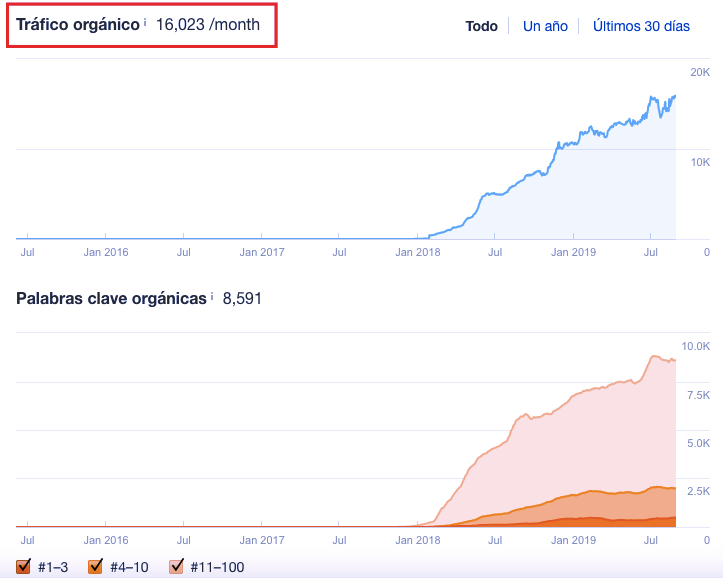Search
To search for an exact match, type the word or phrase you want in quotation marks.
A*DESK has been offering since 2002 contents about criticism and contemporary art. A*DESK has become consolidated thanks to all those who have believed in the project, all those who have followed us, debating, participating and collaborating. Many people have collaborated with A*DESK, and continue to do so. Their efforts, knowledge and belief in the project are what make it grow internationally. At A*DESK we have also generated work for over one hundred professionals in culture, from small collaborations with reviews and classes, to more prolonged and intense collaborations.
At A*DESK we believe in the need for free and universal access to culture and knowledge. We want to carry on being independent, remaining open to more ideas and opinions. If you believe in A*DESK, we need your backing to be able to continue. You can now participate in the project by supporting it. You can choose how much you want to contribute to the project.
You can decide how much you want to bring to the project.

I
We dedicated two mornings a week to studying novelties in the Google ecosystem. First we read the news about the large generalist portals, Search Engine Land or Search Engine Journal. Then we moved on to the fundamental articles: studies of patents at SEO by the Sea, for instance. Our task, that of positioners, required that we understood as deeply as possible how the Google indexation algorithm worked and were able to anticipate its changes. We had invested in a few commercial websites that had several million monthly users; web portals where jobs depended on the traffic we the positioners got them.
A strange occupation, that of SEO; sacerdotal and digressing; servitude to an obscure god, which, for me, is somehow coming to an end. There’s a constant wear, a chequering of the mind that becomes used to continuously thinking in mechanical terms. Sooner or later, one must give up the job out of sheer exhaustion. Being unable to follow the rhythm of the indexing beast.
At dead times, when we had finished satisfying our clients’ needs and all contingencies had been addressed and solved, we devoted ourselves to technical experimentation. We thought: What can we do with this knowledge we have? Because if we’re able to position car websites, huge health information portals, why don’t we try with something more sophisticated? At these dead times we create strange, shapeless websites in order to see how the indexation algorithm responds to anomalous approaches. One of these projects was only partially developed but it’s the one I want to rescue for this article dedicated to the theme of imposture.
Given that some of us liked to write (as dilettantes), we invented the figure of a science-fiction author and tried to position him, first of all in Google’s organic indexation and later in Amazon’s e-book network, by means of artificial positioning techniques. We decided to plan it all in the most sophisticated possible way, a way or a technique I shall briefly describe here and to imaginative effects. To indicate, in turn, that this is how the e-book industry on the Internet works, artificially, and to see how success is possible, albeit partial, by simply having a command of technique.
II
The first thing we did was to build a website dedicated to literature, optimised for searchers at the escribien.com. domain. If it is really feasible to give a number, more than two hundred factors determine the positioning of a website, but no doubt content, structure, loading speed and link building are key elements (considering that each of these words conceals many other factors that are susceptible of optimisation). Our objective was to consolidate an informative website about two themes: creative writing and grammar. In the grammar section we published exhaustive guides such as ‘Types of Prepositions: Complete Guide’. In the writing section we also published exhaustive guides such as ‘How To Write A Novel in Nine Steps’. Always starting from previous research, using tools like Ahrefs or Semrush to discover what people search for, how they do so and the positioning difficulties of each search. We used these tools to analyse the content of competitors and the best indexed results, in order to equal them and surpass them. The content was written for users, bearing in mind the complex rules inferred from robot readings. In short, writing for robots. We also bought packs of links at sites like Enlazator or Enlazalia and gradually created external link structures that avoided the surveillance mechanisms of Google’s Panda algorithm. Then, at sites like Publisuites, Prensarank or Leolytics we bought more authoritative links in relevant newspapers and websites (many of them very well known and of daily reading for average Spanish citizens). The construction of external authority (measured by Ahrefs’ Domain Rating metric), if done well and in conjunction with good content and an optimisation of the time taken for the website to load and other factors, redounded in the grail of all SEO: organic traffic.

Thus, over the course one year we wove a network that intended to capture any traffic interested in literary themes. [This is where the imaginative part begins, which has not been fully developed.] We began to place book reviews and a few key articles for our objective on the website, to create a science-fiction author out of nowhere. One of them was, of course, the guide: ‘The Best Science-Fiction Books To Date’. Our objective here was to position a guide for readers interested in science fiction. Once positioned, we would place our author. With the same objective in mind, we positioned ‘The Best Books on Spacecraft’ and ‘The Best Horror-Story Books’. First we carried out our study, then we carefully applied the technique and, finally, we received traffic.
This took place without any mishaps or problems as long as there were no changes in algorithm. Algorithm changes make searchers more intelligent and it is to be hoped that if people want to avoid being discovered and penalised, they will have refined their tactics. Thus, in a short period of time we had a website that had several thousand users daily, a significant proportion of which directly entered our guides of ‘science-fiction books’ and others. Users interested in reading and books.
III
On the other hand, we wrote a book of short stories, which we titled El futuro ya no es lo que era – the future isn’t what it used to be – as it contained what we considered an interesting keyword which, according to Ahrefs, by August 2019 had been the object of 2200 searches with a zero degree of difficulty. Apparently, it matches an awful film made in 2016. So, we had found a gap in which to place our book, which we had titled SEO, and put it in the position to get traffic. I’m not going to describe what we wrote about, of course, what sort of literature we produced or didn’t produce, because that’s completely irrelevant as long we made sure that at least one of the stories had a minimum quality and meant we could offer it as a free downloadable sample.
Once the book was finished we uploaded it to Amazon KDP and implemented purchasing links in all the reading guides that we placed on the website. Then we bought reviews by influencers in the cultural and literary worlds, preferably specialised in science fiction or similar subjects on Tomoson. On this occasion we financed the purchases with the money we had earnt through our advertising website and by reselling spaces for articles. In other words, we financed ourselves and as we were familiar with cultural advertisement niches, we purchased traffic on sites like Exoclick, Adwords and Facebook Ads. In turn, we positioned our product on Amazon and its respective associated technique. In essence, we built a channel, a pressure jet, a supreme emission of specialised traffic on banners, landing pages and all sorts of strategies for purchasing a book for which we had created dozens of real though artificial reviews that gave it an aura and a character it didn’t really have. We wrote them one afternoon, to amuse ourselves. We received organic traffic that made purchases, and paid traffic that made purchases. With multiple variations and subtleties, this is done by hundreds or thousands of e-books that are right now at the top of the sales list.
Intelligently and delicately, it’s possible to fabricate lies out of nothing, though I don’t know how long for or to what effects.

Víctor Balcells Matas (Barcelona, 1985). He is the author of the novels Discotecas por fuera (Anagrama, 2022) and Hijos Apócrifos (2014), as well as the short story books Yo mataré monstruos por ti (Delirio, 2010) and Aprenderé a rezar para lograrlo (Delirio, 2017). In the field of contemporary art, he is the author of the artist’s book 189 errors (Can Editions, 2017) and was a finalist for the Art Nou award in 2016.
"A desk is a dangerous place from which to watch the world" (John Le Carré)